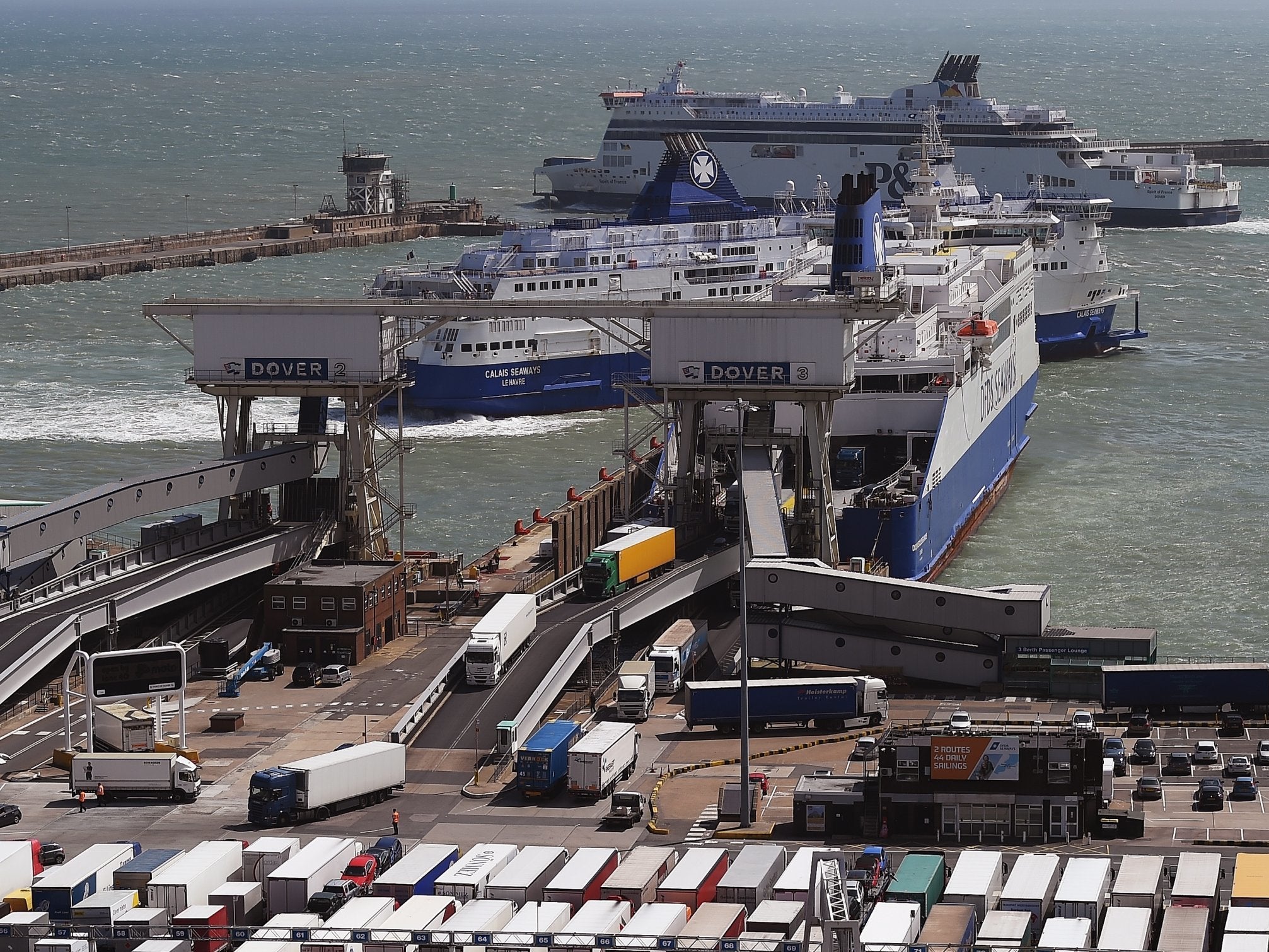Brexit: Government announces plans to bring medicine from Europe in case of no-deal after Grayling's ferry fiasco
Government sources said no money would be spent or committed until September
Your support helps us to tell the story
From reproductive rights to climate change to Big Tech, The Independent is on the ground when the story is developing. Whether it's investigating the financials of Elon Musk's pro-Trump PAC or producing our latest documentary, 'The A Word', which shines a light on the American women fighting for reproductive rights, we know how important it is to parse out the facts from the messaging.
At such a critical moment in US history, we need reporters on the ground. Your donation allows us to keep sending journalists to speak to both sides of the story.
The Independent is trusted by Americans across the entire political spectrum. And unlike many other quality news outlets, we choose not to lock Americans out of our reporting and analysis with paywalls. We believe quality journalism should be available to everyone, paid for by those who can afford it.
Your support makes all the difference.The Government has announced new plans to secure freight capacity to bring medicines and medical equipment from continental Europe in the case of a no-deal Brexit in October.
The move follows the fiasco of transport secretary Chris Grayling’s decision to hire ferries to provide emergency cover in case the UK crashed out of the EU earlier this year.
Contracts worth more than £100 million were signed with three companies to ship vital goods over the Channel, but one had to be ditched after it emerged it had no ships, Mr Grayling paid £33 million in an out-of-court settlement with Eurotunnel after it complained its train service had been frozen out, and the whole scheme was cancelled at a cost of £50 million in May after the deadline for Brexit was extended to 31 October.
A Whitehall source said that lessons had been learnt from the earlier exercise and a different approach has been adopted this time.
But pharmaceutical trade body the ABPI said it was "very challenging" for the industry to have to prepare for possible no-deal outcomes on constantly moving dates.
No money is being spent or committed at this stage, with more than four months to go to the possible date of a no-deal Brexit.
Instead, companies are being informed through public information notices of the terms of possible future contracts which may be available for tender no earlier than September.
Freight companies – including ferry and train operators – are able to express an interest in joining a framework process allowing them to bid for contracts on specific services and routes in September if the UK has secured neither an EU withdrawal agreement nor an extension to negotiations by that point.
Medicines, medical equipment and veterinary drugs are among the critical goods which will be eligible for contracts.

The announcement, in a written parliamentary statement by Cabinet Office minster David Lidington, comes shortly after medical firms warned that delays in making plans for ferry capacity in October might leave the NHS short of essential drugs after a no-deal Brexit.
Downing Street denied that the fact that the announcement came from Mr Lidington meant that Mr Grayling had been stripped of responsbility for the issue.
A Number 10 spokesman said the move was part of “steps we are taking as a sensible governmetn to ensure that we are prepared in the event that we were to leave without a deal on 31 October”.
Tory leadership frontrunner Boris Johnson has said that he would take the UK out of the EU on Halloween, deal or no deal, while his rival Jeremy Hunt has said he would be willing to extend negotiations further if an agreement seemed within reach.
The chief executive of the Association of the British Pharmaceutical Industry, MIke Thompson, said: “Pharmaceutical companies have been doing everything in their power to prepare for the UK’s exit from the EU. Our members have been increasing stocks, duplicating testing and planning for alternative routes where possible.
“But some things are outside of their control. Additional Government secured freight capacity was key to company planning for a ‘no deal’ in March and this must be available to companies again as they prepare for the end of October. Our members will be pleased that the Government are taking steps to put this capacity in place again and await further information about how this will work in practice.
“However, it is extremely challenging for pharmaceutical companies to be continually preparing for a ‘no-deal’ Brexit. Leaving the EU with a deal in place remains the best way to minimise any potential disruption to medicines supplies.”

Join our commenting forum
Join thought-provoking conversations, follow other Independent readers and see their replies
Comments